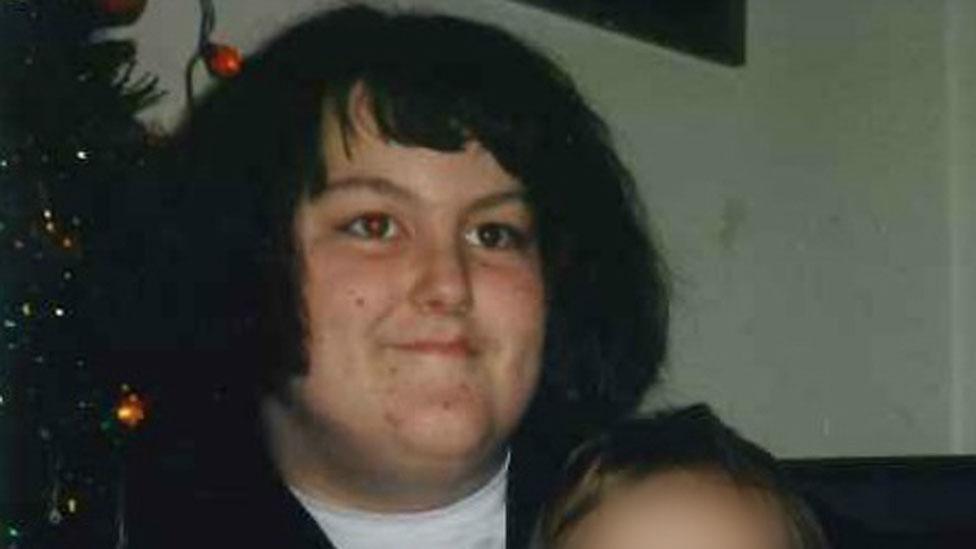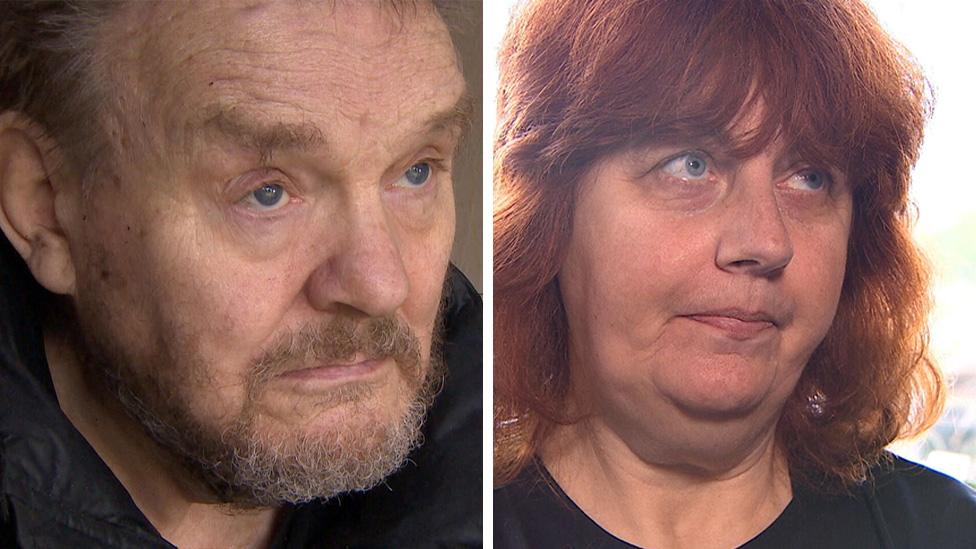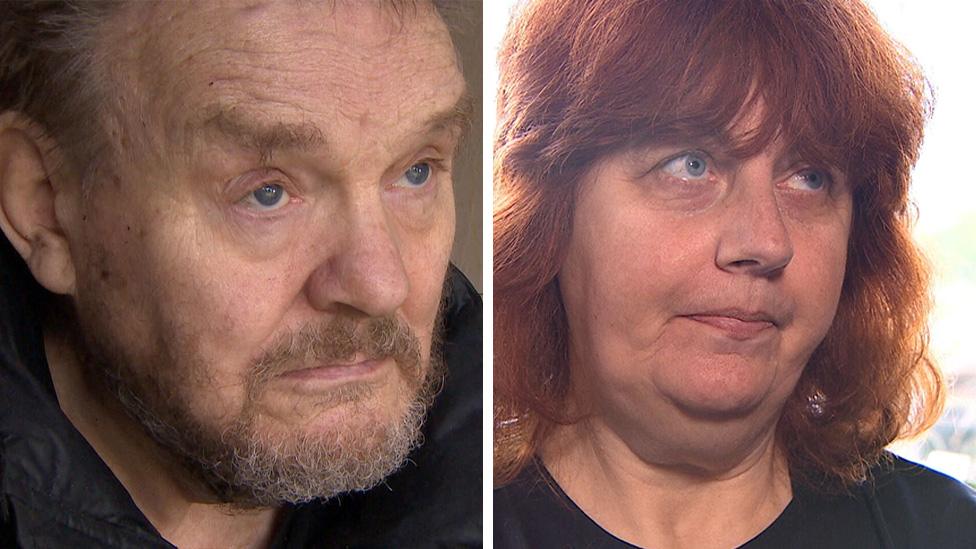Margaret Fleming: Inquiry to examine 'tragic' case
- Published

Margaret Fleming had moderate learning difficulties
An independent inquiry will examine the role of various agencies in the "tragic" life of murder victim Margaret Fleming.
Edward Cairney, 77, and Avril Jones, 59, killed the vulnerable teenager between December 1999 and January 2000.
Jones then continued to claim £182,000 in benefits until it finally emerged Margaret was missing in October 2016.
This week a new documentary Murder Trial: The Disappearance of Margaret Fleming shed fresh light on the case.
It featured footage from the trial at the High Court in Glasgow, after which the couple were jailed for 14 years.
The body of Margaret, who was 19 when she was last seen in Inverkip, has never been found.
Inverclyde Health and Social Care Partnership has now confirmed that Prof Jean MacLellan has been asked to head up the Significant Case Review and its first planning meeting is scheduled for next month.

Cairney and Jones spent years pretending that Margaret Fleming was still alive
A council spokesman said: "We have always been very clear that there will be a full independent inquiry into the circumstances surrounding Margaret Fleming's tragic death.
"However, the legal process had to run its course first.
"We were advised by the procurator fiscal that the inquiry couldn't start until the trial of Edward Cairney and Avril Jones, and any subsequent appeals, were complete."
'Extensive cover-up'
Prof MacLellan is the director of the Autism Network Scotland and has worked in a variety of roles in local authorities, health and the voluntary sector.
For much of her career she worked as a social work inspector and a senior civil servant in the Scottish government, where she led policy in a number of areas, including adult protection.
Her report will be published once it is completed, a process that is expected to take six months.
As well as the council's role, it will also examine the actions of the Department for Work and Pensions.
The spokesman added: "This will be a full, independent inquiry which will involve all the agencies which were involved with Margaret during her life.
"A key area for the SCR team will be to uncover any lessons that are to be learned from the extensive cover-up carried out by Edward Cairney and Avril Jones to hide their appalling treatment of Margaret, while she was in their care, and the murder that they subsequently committed."
Councillor Chris McEleny, who sits on the council's health and social care committee, welcomed the development.
He said: "Margaret was failed by her carers and failed by those with a duty of care to ensure her protection.
"It's vitally important that we now establish how this was allowed to happen and ensure that there are no similar cases out there."
Despite a painstaking search of the couple's dilapidated property on the Clyde coast, and its garden, no trace of Margaret has ever been found.
Sgt Chris McKay returns to the house where he first met Edward Cairney and Avril Jones.
Testimony from Avril's brother, Richard Jones, was used to pinpoint the last independent sighting of the teenager on 17 December, 1999.
Three weeks later, on 5 January, 2000, Avril told her mother, Florence Jones, that Margaret had run off with a traveller.
The couple, who had no previous convictions, then embarked on a cover-up which involved bogus letters and erasing all trace of Margaret from the cottage where she had lived for about two years.
When police were finally alerted in October 2016 it was as a result of an application for Personal Independence Payments (PIP) - which had been filled out by Jones.
In it she wrote that Margaret "needs constant care", had self-harmed and was "caught eating out of a dog bowl".
A social worker phoned Jones to offer help and was told that Margaret had not been to the doctor, despite picking a hole in her head.
Police Scotland subsequently launched a missing persons' investigation in October 2016.
When the couple were eventually arrested a year later they maintained that Margaret was still alive and often returned to visit them.
- Published4 January 2020

- Published1 November 2019
